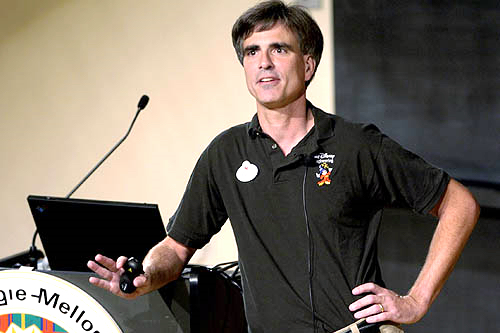The Lessons in Learning
|
The world is filled with people willing to give advice especially within the political sphere. Many of them would like to be the president in 2016. Nonetheless, I have two preschool grandchildren, Jack and Owen, who are more erudite than Sarah Palin, Ted Cruz, Michele Bachmann, Mike Huckabee, et al.
This is an example of Jack and Owen's learning. I had started on art history, but soon Jack was exploring something else. Therefore, I just sat back to watch. What was intriguing was that he wanted to explain his intellectual probe to Owen. Jack is 4½ and Owen is 2½. Look at the interest level in both children.
Then Owen gets the idea and begins to work at discovering. We call that process learning. That began me to think about the broader question of learning in general. As Jack and Owen delved into their wondering, I too started to think about learning. How do we learn? What is the best methodology that we can use to acquire knowledge and use it in our personal lives and within the greater community around us? I have discovered two useful learning tools, which are at least partially interrelated. The first has to do with Chinese culture. The Chinese people hold their older population in very high esteem and have for a couple of millennia. The older Chinese have gone down the yellow brick road of life over many decades and have learned through experience many lessons of life that the younger generations have not experienced. Therefore, the older generation has far more time to experience both life and learning. This is critical to learning. The second methodology regarding learning is also generally tied to the older generation but not always. We can learn by means of extraordinary happenings or events. While things like near-death experiences tend to be related to the older generation, some younger people also experience these brushes with death. In my case, I fit both categories. I am older and have had some extraordinary experiences like dancing with death nearly a decade ago. I have written many articles about dealing with prostate cancer and a traumatic head injury. Nevertheless, my audience of true believers is limited. Then Mike Schmitt, a friend of mine, introduced me to Randy Pausch. Pausch was a professor at Carnegie Mellon University. Carnegie Mellon had a tradition of having retiring professors present their Last Lecture. Listen to a brief minute of what Carnegie Mellon used to call the Last Lecture. Now, do I have your attention? Pausch is providing an important lesson of life about which we all need to learn. If we do not apply that learning to our personal lives, we will jeopardize much of the time that remains for us here on Earth. Pausch is quite clear, "It's not about the cards you're dealt, but how you play the hand." We are dealt many things including diseases like pancreatic cancer. We cannot change these occurrences. Nonetheless, we can control the way we play the hand. That is an essential learning for all of us. Complaining about our personal misfortunes gets us nowhere. When we complain, we merely add negativity to our lives and those around us. While Pausch teaches us in his words, we also learn by his modeling. In Pausch's Last Lecture, learning occurred merely by watching him. Look at his face and the way he carries himself during the lecture. Now, I want to conduct an experiment, which will prove my point. Click on any part of the lecture and watch it for a couple of minutes. Then click on the mute button and continue to watch his lecture. What have you learned about Pausch by watching him with the sound on and also off? Everyone in the audience at Carnegie Mellon University knew before the lecture that he had pancreatic cancer that had metastasized into his liver. However, what did they learn from Pausch. They all learned that he believed in what he was saying even if you did not hear his words. That is the critical learning for all of us. Therefore, modeling is essential. Now, compare Randy Pausch with Sarah Palin. The same rules apply to Palin as applied to Pausch. Listen to a couple of minutes of Palin's lecture and then click on the mute button. I would have loved to have spent hours talking with Pausch. On the other hand, I would not have wasted a nanosecond with Palin. Not only did her lecture not make sense intellectually, but watch her facial movements and gestures when the lecture is muted. We learn by the words we speak and equally by the way we model. Pausch was dying but you would not have known it from both his words and his movement. Before Pausch died, he was able to realize a lifelong dream of playing with the Pittsburgh Steelers. Randy Pausch was dying of pancreatic cancer. However, what did you learn from watching him kick and catch the football with the Pittsburgh Steelers? I learned how to live my life. You and I have a great deal to learn during life, but choose wisely from whom we go to be taught.
Hines Ward signing his jersey for Randy Pausch
Pausch video CMU
Visit the On Seeing the Light page to read more about this topic.
Visit the Connecting the Dots page to read more about this topic.
Visit the Darkest Before Dawn page to read more about this topic.
Visit the The Last Lecture page to read more about this topic.
Visit the Dancing with Death page to read more about this topic.
Visit the Confucius Said page to read more about this topic.
Visit the Best and Worst of Times page to read more about this topic. 04/13/15 Follow @mountain_and_me |

















